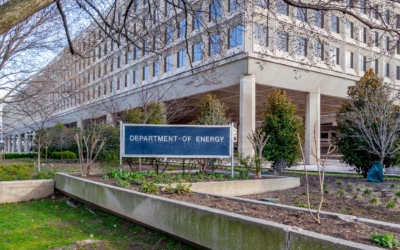This week’s climate digest spotlights a series of urgent and transformative developments from around the world, as policymakers, financial leaders, and local communities grapple with the accelerating realities of climate change. From major breakthroughs and delays in international climate policy to unprecedented economic losses, new funding initiatives, and bold national strategies, the past seven days have seen both challenges and advances that shape the global response to the climate crisis.
EU leaders reach breakthrough on 2040 climate target
European Union leaders have reached a tentative agreement to move forward on their 2040 climate goal after weeks of political wrangling over competitiveness and environmental ambition. The deal aligns the bloc’s climate targets with measures to support industries such as automakers and manufacturing, which have been lobbying for more gradual transitions.
The compromise, described by Bloomberg as a “breakthrough,” leaves ministers to finalise details at a meeting on 4 November. The European Commission reportedly agreed to “control” carbon prices in the new emissions market covering heating and transport fuels, providing flexibility for member states struggling with high energy costs. Carbon Brief
UN shipping carbon price vote delayed after U.S. pressure
Negotiations to introduce a global carbon pricing system for the shipping industry collapsed this week following U.S. opposition at the International Maritime Organization. The decision pushes back formal adoption of the scheme by at least a year, delaying regulation of one of the world’s most polluting yet lightly regulated sectors.
The Financial Times reported the delay as a major diplomatic win for Washington, calling it “one of Trump’s most effective reversals of global climate policy.” The UN described the postponement as a “missed opportunity” to decarbonise global maritime operations, while the European Commission labelled it “regrettable.” Carbon Brief
Indigenous Sámi people sue Finland over climate inaction
The Sámi people have filed a landmark complaint against the Finnish government at the UN Human Rights Committee, claiming climate change and deforestation threaten their cultural survival. The group, which relies on reindeer herding in the Arctic, argues that warming winters and state logging practices violate their rights to land and culture under international law.
Their case follows a 2022 UN precedent that recognised climate-linked displacement of Indigenous Australians as human rights violations. The Sámi allege Finland’s adaptation measures, including limited compensation for reindeer herders, are insufficient. The case could set a significant precedent for Indigenous climate litigation in Europe. Carbon Brief
Norway’s wealth fund intensifies emissions pressure on firms
Norway’s sovereign wealth fund, valued at over $2 trillion, has tightened its climate oversight by demanding that portfolio companies set credible paths to net-zero emissions by 2050. The move comes amid increasing political pushback against ESG mandates in the U.S.
The fund stated that stronger climate compliance will be used as a criterion for investment decisions, potentially leading to divestment from non-compliant firms. The announcement underscores a transatlantic divide over climate finance, with Nordic investors increasing climate commitments as the U.S. loosens environmental rules. Reuters
Record climate disasters cost U.S. $101 billion
The U.S. experienced a record-high $101 billion in damages from weather and climate disasters in the first half of 2025, according to Climate Central research cited by The Guardian. The report attributes the escalating costs to more frequent hurricanes, wildfires, and floods amplified by rising global temperatures.
Experts warn that even with adaptation measures, the rate of climate-linked economic losses is outpacing insurance and infrastructure resilience investments. The study reinforces calls for comprehensive federal climate adaptation funding before COP30 in Brazil this November. Carbon Brief
World Bank launches Tropical Forest Forever Fund
The World Bank announced it will host the new Tropical Forest Forever Fund, supported by Brazil’s COP30 presidency, to provide sustainable financing for rainforest conservation. The initiative aims to channel billions annually into forest management and carbon credit projects.
Brazilian officials described the fund as a “cornerstone” for preserving the Amazon while supporting local economies. Environmental advocates, however, urged stronger safeguards against greenwashing and exploitation of Indigenous territories. Carbon Brief
UK unveils plan for 400,000 green jobs
The UK government has unveiled a five-year plan to create 400,000 clean-energy jobs, signalling a renewed push for a just transition ahead of COP30. The initiative includes investment in onshore wind, electric vehicle manufacturing, and skills retraining for fossil fuel workers.
Prime Minister Keir Starmer is also expected to attend the upcoming climate conference in Brazil, highlighting the UK’s intent to maintain global climate leadership despite ongoing energy security debates. The plan marks one of the largest green employment programmes since the 2021 Net Zero Strategy. Carbon Brief
China outlines “Beautiful China” climate strategy
Beijing officials have included “Building a Beautiful China” as a central goal of China’s upcoming 15th Five-Year Plan (2026–2030), elevating environmental quality and emission reduction targets to national priorities. The strategy expands on China’s carbon neutrality goal, combining pollution control with nature recovery initiatives.
International analysts view the plan as an effort to rebrand China’s growth model around sustainability, echoing earlier commitments to peak emissions before 2030. The plan prioritises renewable energy deployment and river basin restoration under the “Beautiful China” banner. Carbon Brief
New Zealand hit by climate-fuelled storm
New Zealand declared a state of emergency in Canterbury as a powerful spring storm battered the South Island this week. The weather event, intensified by warmer ocean conditions, brought destructive winds and rainfall that disrupted transport and power services.
Meteorologists linked the storm’s intensity to a strengthening El Niño pattern, warning that such events are becoming increasingly frequent due to ocean temperature anomalies. The event underscores New Zealand’s vulnerability to climate-induced hydrological shifts. Reuters
State of Climate Action 2025 report warns no sector on track
A major new report, State of Climate Action 2025, finds that none of the world’s 45 indicators are on track to meet the Paris Agreement’s 1.5°C targets by decade’s end. The report assesses progress across energy, transport, buildings, and food systems.
Authors warn that while renewable deployment has accelerated, it remains inadequate compared to the global emissions trajectory. The report calls for scaling up carbon finance and technologies at triple the current pace to avert climate overshoot. World Resources Institute




